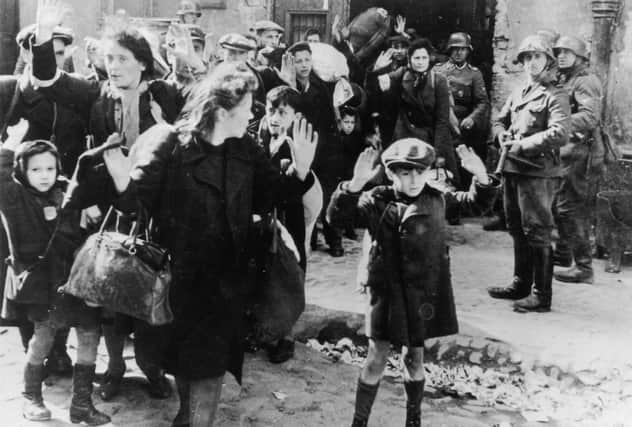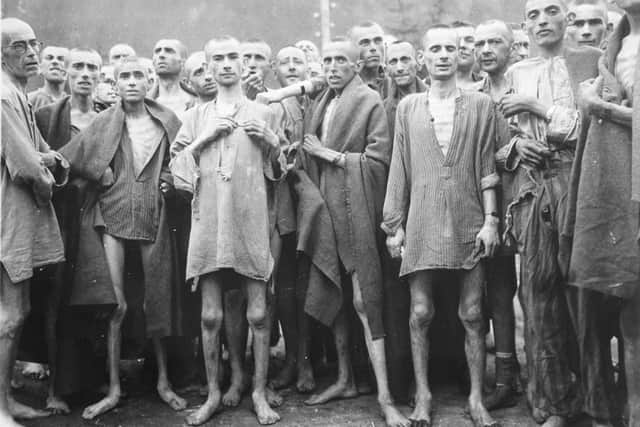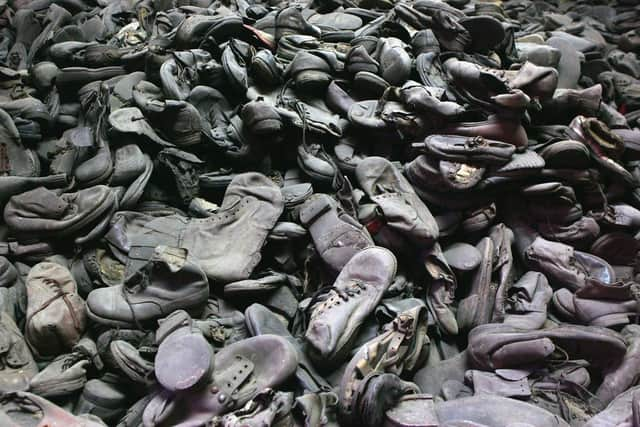Holocaust Memorial Day: Why it matters more than ever before – Professor Joe Goldblatt


We had just enjoyed a delicious dinner in a fine restaurant with our partners. The attorney asked me with a cold stare, “What’s the big deal about the Holocaust? It happened a long time ago.” I immediately had indigestion and felt very unwell.
Last weekend another act of antisemitism, this time in Colleyville, Texas, only a few miles away from the home where I was raised and the synagogue that I attended, left a community terrified.
Advertisement
Hide AdAdvertisement
Hide AdOf course, that is exactly what the perpetrator wanted to happen when he entered the Beth Israel synagogue to hold hostage the rabbi and three members of the congregation for several hours until they were rescued by local police.
The terror that this small community experienced and will sadly remember for the rest of their lives is unfortunately something that is well-practiced amongst the Jewish, Muslim, Sikh and other minority religious and ethnic communities.
The rate of anti-semitism in the UK has risen year upon year for the past decade. According to the UK Jewish Community Security Trust, there was a 49 per cent increase in anti-semitic incidents in the first six months of 2021 over the previous year.
Our brothers and sisters in the Islamic and Hindu faiths are also well aware of the fragility of their own institutions through many instances of attacks upon both their faithful and places of worship. Throughout the world, whether in Rwanda or Bosnia, or closer to home in the Roma and LGBTQI communities, minorities have experienced harassment and terror that, similar to the Jewish Holocaust, becomes part of their DNA that is passed along to succeeding generations.


That is why my very well-educated friend, whose career was based upon promoting a more just world, shocked me with her callous comments nearly three decades ago. I later learned that she herself was a granddaughter of Holocaust survivors which I believe makes her arrogance and ignorance even more shameful.
Perhaps the annual commemoration of Holocaust Memorial Day is a proper time to examine why remembering atrocities such as holocausts and genocides is critically important to current and future generations.
January 27 was chosen for Holocaust Memorial Day to commemorate the date that Auschwitz concentration camp was liberated by the Red Army in 1945. It remembers the killing of six million Jews and 11 million others by the Nazi regime and its collaborators. It was designated by United Nations General Assembly resolution 60/7 in 2005. The UK commemoration has taken place every year since 2001.
The theme for the 2022 commemoration is “One Day” which reflects that when Holocaust and genocide survivors are often asked to provide a testimony of their experience they often begin by explaining how their lives were dramatically changed in “one day”.


Advertisement
Hide AdAdvertisement
Hide AdHenry Wuga MBE is a survivor of the Jewish Holocaust and in his testimony he describes how one day his entire Jewish community was suddenly under siege and he was fortunate to be rescued through the historic Kindertransport programme that saved the lives of 10,000 Jewish children by bringing them to the United Kingdom.
For survivors such as Mr Wuga and others, these memories, although painful, still remain fresh today and they often share their stories in local schools to help future generations understand how, in one day, a life may be lost or saved and why it is important to practice understanding and tolerance to prevent future Holocausts and genocides.
The 2022 Holocaust Memorial Day commemoration in Scotland features an original video production that includes the testimony of Henry Wuga as well as a Rwanda genocide survivor, Eric Eugene Murangwa, whose life was saved through a career in football.
These men both describe how the kindness of strangers in foreign countries were the essential elements that contributed to their rescue, recovery and rededication to life itself. The video is produced by the Edinburgh Interfaith Association and it also includes school pupils from Orkney to Edinburgh conversing with survivors to learn about their experience.
In the 1930s, most countries in the world had restricted entry for German and Austrian Jews. However, in Shanghai, China, nearly 20,000 Jewish men, women and children were welcomed and saved.
The Shanghai Jewish Refugee Museum is a living monument to the noble efforts of those who saved these Jews and to the courage of the refugees themselves. I have visited this museum many times and now serve as one of their volunteer leaders. When our survivors are asked about why they travelled over 7,000 miles to China, they often says “where else could we go?”
As I watched the preview of the emotionally powerful new video for Holocaust Memorial Day Scotland, I found myself watching the eyes of the school pupils as they listened to the survivors describe the turmoil and turbulence that, in one day, caused their lives to change beyond recognition.
Their eyes spoke volumes about why Holocaust Memorial Day is critically important for current as well as future generations because, through their enlightenment, there remains the hope that future holocausts and genocides will be less likely to occur.
Advertisement
Hide AdAdvertisement
Hide AdI have long since lost touch with my friend the lawyer, however, if we were to meet again today I would perhaps be better positioned to answer the question of “why” by asking another question in return. When someone asks me why the Holocaust is worth remembering and commemorating I will ask in return “what happens if we stop?”
The answer to that question was evidenced this week in Texas in a small synagogue when four Jewish people simply wanted to pray in peace.
Joe Goldblatt is emeritus professor of planned events at Queen Margaret University in Edinburgh, chair of the Edinburgh Interfaith Association, and vice-chair of the Shanghai, China Jewish Refugee Museum.
To receive the free link to view the Holocaust Memorial Day video when it premieres on 26 January 2022 at 6pm, register here.
A message from the Editor:
Thank you for reading this article. We're more reliant on your support than ever as the shift in consumer habits brought about by coronavirus impacts our advertisers.
If you haven't already, please consider supporting our trusted, fact-checked journalism by taking out a digital subscription.
Comments
Want to join the conversation? Please or to comment on this article.
